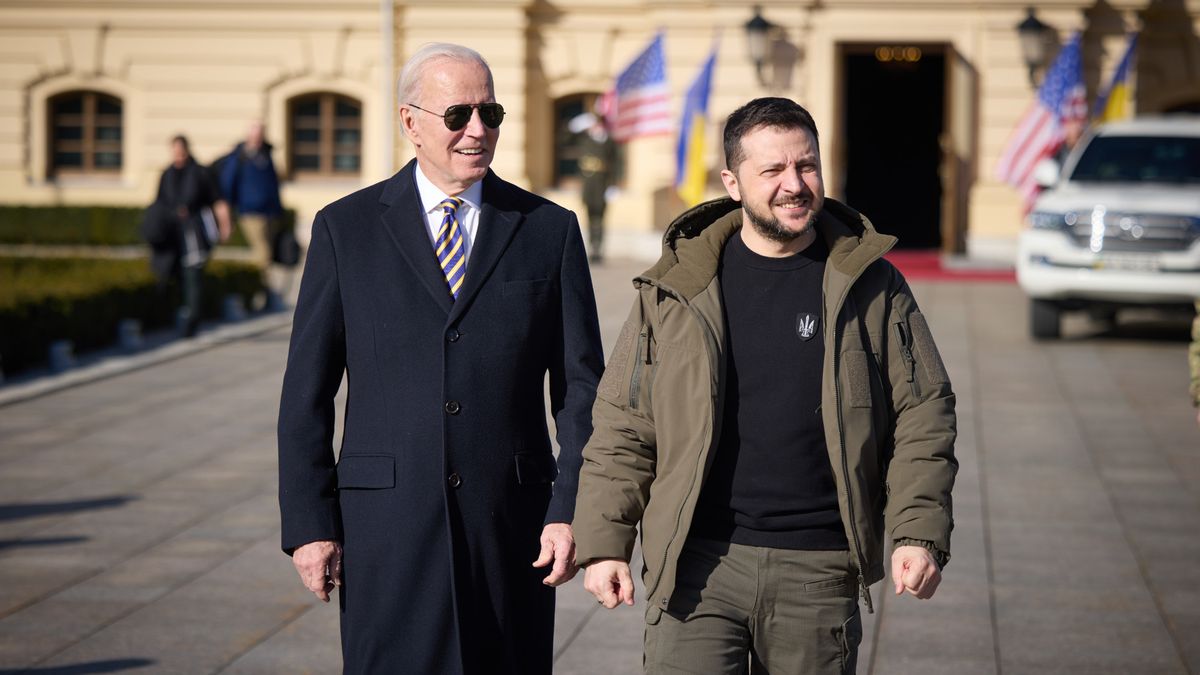Biden Approves Ukraine’s Use of Long-Range Missiles as Russia Escalates Deadly Assault

United States President, Joe Biden, has authorised Kyiv to deploy long-range American missiles against military targets inside Russia, a U.S. official confirmed on Sunday.
This decision follows reports of North Korea deploying troops to support Moscow’s war effort and comes hours after a devastating Russian missile barrage struck Ukraine’s power grid, leaving 11 civilians dead.
According to reports by The New York Times and The Washington Post, the approval to use the Army Tactical Missile System (ATACMS) was in response to Russia’s growing aggression.
Ukrainian President Volodymyr Zelensky, who has consistently called for access to the missiles, emphasised their role in Ukraine’s broader victory strategy during his Sunday evening address.
“Strikes are not made with words,” Zelensky stated cryptically. “The missiles will speak for themselves.”
Poland’s Foreign Minister Radoslaw Sikorski welcomed the development, attributing Biden’s move to the recent involvement of North Korean troops and Russia’s intensified assault. “The victim of aggression has the right to defend himself,” Sikorski wrote on X.
Russia’s Largest Barrage Yet
Sunday’s missile attacks, which Zelensky described as one of the largest in the war’s history, targeted Kyiv and regions across southern, central, and western Ukraine, killing civilians in Mykolaiv, Lviv, Kherson, Dnipropetrovsk, and Odesa.
Russian forces reportedly launched 120 missiles and nearly 100 drones, further crippling Ukraine’s energy infrastructure ahead of winter.
State power company Ukrenergo announced emergency electricity restrictions starting Monday, with Ukraine bracing for a third winter of war. Zelensky warned that previous Russian strikes had already destroyed half of the country’s energy capacity.
International leaders condemned the attacks, with United Nations Secretary-General António Guterres denouncing Russia’s targeting of civilian infrastructure as “unacceptable.”
EU Commission President Ursula von der Leyen called the assault on Ukraine’s power grid “horrible,” while French President Emmanuel Macron, speaking from Argentina, declared that Russian President Vladimir Putin “does not want peace.”
Criticism of Diplomatic Efforts
Germany’s recent attempts at diplomacy drew criticism in light of the escalating violence. Ukrainian officials called Chancellor Olaf Scholz’s phone call with Putin on Friday an “appeasement” effort.
“This is war criminal Putin’s true response to all those who called and visited him recently,” remarked Ukrainian Foreign Minister Andriy Sybiga.
Poland’s Prime Minister Donald Tusk echoed the sentiment, stating, “No one will stop Putin with phone calls. The attack last night has proved that telephone diplomacy cannot replace real support.”
British Prime Minister Keir Starmer reiterated his firm stance, saying, “I have no plans to speak to Putin,” and warned of “serious implications for European security” following reports of North Korean troops in Russia.
North Korea’s Role Sparks Alarm
Western intelligence and Ukrainian sources allege that thousands of North Korean troops have arrived in Russia to bolster its forces. This includes deployments to regions like Kursk, where Russian authorities claim Ukrainian drone strikes have killed civilians, including journalist Yulia Kuznetsova.
Kursk officials confirmed her death, stating she had been reporting on local developments amidst the conflict.
The involvement of North Korea underscores Moscow’s desperation, analysts suggest, as the war nears its 1,000th day. Biden’s decision to greenlight the use of ATACMS missiles signals heightened U.S. commitment to Ukraine’s defence.
A Turning Point in the War
As Ukraine faces mounting challenges, including harsh winters and ongoing infrastructure attacks, Biden’s approval of long-range missiles may shift the dynamics of the conflict. Zelensky, however, remains cautious, emphasising that actions will speak louder than words.
The coming days will test Ukraine’s resilience as it continues to battle an increasingly desperate Kremlin.







